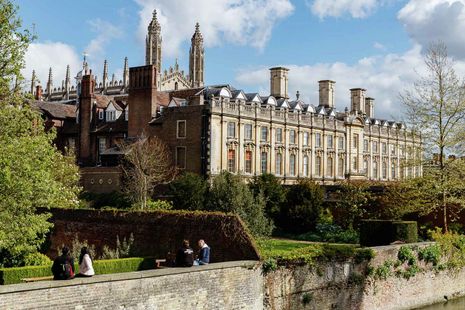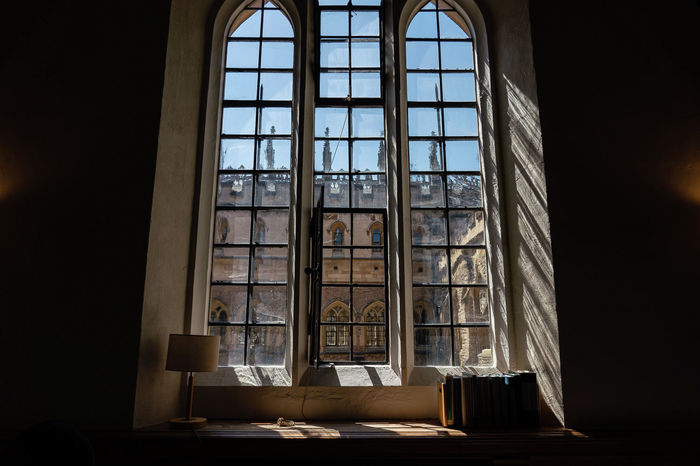University of Cambridge tops Good University Guide 2021 but ranks the worst for social inclusion
Cambridge retains its top spot in the Good University Guide league table for the eighth consecutive year despite scoring the worst in the guide’s social inclusion ranking by a significant margin

Cambridge has ranked as the top British university for the eighth consecutive year in The Times’ and The Sunday Times’ Good University Guide 2021, with Oxford and St Andrews coming second and third respectively.
However, while performing highly in overall institutional ranking, Cambridge is at the bottom of the guide’s social inclusion ranking.
The institutional league table rankings are determined by using data on eight metrics (entry standards, student-staff ratios, student satisfaction, services and facilities spend, completion rates, first-class and 2:1 degrees, graduate prospects and research quality), with scores for student satisfaction and research quality being weighted by 1.5 while all other indicators were weighted by 1.
The University achieved the highest overall ranking for research quality (57.3) but did not achieve a ranking for student satisfaction as Oxford and Cambridge are the only universities who do not provide data for this metric.
Cambridge spends more on services and facilities than all other universities in the top 10 besides Imperial. While Cambridge spends £3828 on services Oxford spends £3436 and Imperial spends £3914.
The University was also ranked 3rd for its graduate prospects, losing out to the top two spots by Imperial and LSE, and came out top in 32 of 67 subject tables, five more than in 2019. In comparison, Oxford, the second highest ranked university, only came top in 5 subjects.
However, despite Cambridge retaining its top position in the league table, Oxford was named the University of the Year. This is largely attributed by The Times to the University’s first female vice chancellor who has “overhauled the university’s admission system” and has “positioned Oxford at the nexus of change” as well as its researchers who are leading the search for a Covid-19 vaccine.
Moreover, while Cambridge has performed highly in the Good University Guide rankings, which only measure British Universities, the University has not ranked as well in recent global league tables. The University fell to 6th place in the Times Higher Education World Rankings, its lowest position since 2014, and placed seventh in the latest QS World University Rankings.
While Cambridge has retained its position as the best British university, it has also been ranked the worst performing university in terms of social inclusion, ranking 116th out of 116 universities. Cambridge scored 238 out of 1000 in the social inclusion ranking well below the other lowest ranked universities Durham (269) and Oxford (293).
The social inclusion ranking is measured across eight metrics: state schools admissions (non grammar), the proportion of ethnic minorities, first generation students, mature students and disabled students, the black attainment gap and the dropout rate of students from deprived areas.
Cambridge placed 109th for admissions from deprived areas and performed second-worst for state school admissions while placing 2nd for grammar school admissions and 4th for independent school admissions.
A recent Varsity investigation questioned the University’s representation of their state school admissions as by categorising students based on their A-level education, the University misleads the real number of its students who have attended a private or grammar school at some point in their educational careers.
The investigation also revealed the disparity in acceptance rates and representation levels for students from state comprehensives compared to students from grammar schools and private schools. While private school students comprised 35% of acceptances but only 29% of applications, students who have only ever attended state comprehensives were admitted at a proportion 8% lower than their application numbers.
Cambridge has promised to admit one in six students from the 40% of postcodes with the lowest participation rates in higher education by 2024-25 and draw 69.1% of students from state schools. Following this year’s A-level results fiasco this second aim has already been achieved as preliminary admissions data suggests 70% of this year’s incoming cohort will hail from state schools.
The University was ranked 25th for its black attainment gap and 56th for its proportion of ethnic minority students. This follows Cambridge admitting 91 Black students in 2019, increasing the overall number of Black undergraduate students to an all-time high for the University.
However, despite modest improvements in the overall number of Black students admitted to the University, there are still significant disparities in admission of minority ethnicities. 8 courses in 2019 accepted fewer than 3 Black students and while success rates for Black students have improved from 13% in 2018 to 15.1% in 2019, they are still well below the average success rate of 21.4% across all ethnic groups.
 News / Eight Cambridge researchers awarded €17m in ERC research grants27 December 2025
News / Eight Cambridge researchers awarded €17m in ERC research grants27 December 2025 News / Clare Hall spent over £500k opposing busway 24 December 2025
News / Clare Hall spent over £500k opposing busway 24 December 2025 Comment / League tables do more harm than good26 December 2025
Comment / League tables do more harm than good26 December 2025 Comment / The ‘class’ of Cambridge24 December 2025
Comment / The ‘class’ of Cambridge24 December 2025 News / Caius mourns its tree-mendous loss23 December 2025
News / Caius mourns its tree-mendous loss23 December 2025









